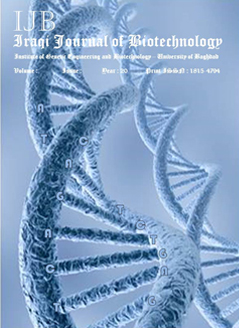The Evaluation of Serum IFN-γ and TGF-β in Some Patients with Type1 Diabetes mellitus in Al-diwanyah Province
Abstract
The diabetes mellitus type one (T1DM) is considered as autoimmune disease due to the destruction of Langerhans beta cell, which is the insulin-producing cell as a result of the invasion by cells of the immune system with vital roles. There is evidence that interferone-γ IFN-γ is responsible for the T1DM disease developing, and so the transforming growth factor type beta ( TGF-β) was known as an important regulator of the immune response. Throughout of this study gain more understanding about the two cytokines role in this disease and the correlation between them to provide immunotherapeutic strategies for T1DM. A total of 35 with T1DM (19 female, 16 male), in addition to (15) healthy control subjects undertook the measurement of serum IFN-γ and TGF-β by ELISA technique. The result explains higher mean serum levels of IFN-γ (684.867 ± 246.23 pg/ml) were observed in the investigated patients compared to healthy control (11.75 ± 4.56 pg/ml). Whereas observed decline in the serum TGF-β (302.2± 65.43 pg/ml) as compared to healthy control (1153 ± 186.35 pg/ml) at the level (p<0.01), and so the result explained a significant negative correlation between TGF_β and INF_γ concentration (p<0.05). The conclusion is that T1DM patients were detected with a significantly increase in INF_γ and decrease TGF_β serum level, and they have the antagonistic effect on the T1DM development.


